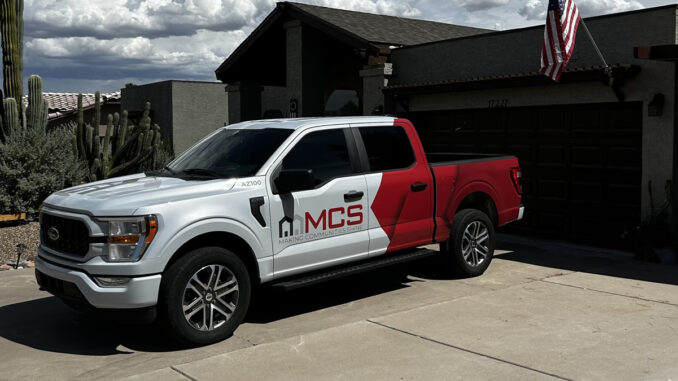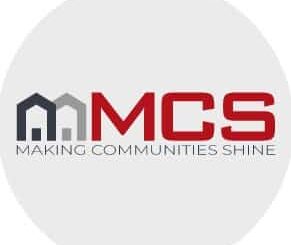
Property preservation company MCS announced last month that it had entered the reverse mortgage business after acquiring Five Brothers Asset Management Solutions. In part one of RMD’s interview with MCS CEO Craig Torrance, he explained his company’s interest in the reverse space.
In the second part of the interview, Torrance goes deeper into the value proposition of engaging in the reverse mortgage business; the ways companies like his might be able to simplify certain necessary property obligations; and more about what the company is inheriting from Five Brothers in terms of knowledgeable people and reverse industry relationships.
Editor’s note: This interview has been edited and condensed for clarity and readability.
Chris Clow/RMD: What do you hope the industry can do to offer more or better information about how MCS will pursue continued business in the reverse mortgage space?
Craig Torrance: I think [we] will naturally, hopefully, bring in the lenders to think through what this relationship will look like going forward, and to identify what else we can do to help folks in the space. Generally, I think as we pull together resources and understand as an industry what we can do, there will be more of that type of thinking around what services can be created for reverse mortgage owners to utilize and say, ’Hey, I need work done. I need somebody to cut my grass.’
In many cases, some of those services are managed by family members. So, you’ve got the elderly folks in the reverse mortgage, and the kids are the ones trying to figure out how to maintain mom’s house. If we can professionalize that so people feel good knowing the person performing this work at mom’s house is from a solid, reputable company — and that the lender, the servicer and everybody’s kind of involved in that — it’s probably an upside for the whole community.
Clow: It’s my understanding that Five Brothers was a member of the National Reverse Mortgage Lenders Association (NRMLA). Is that a membership MCS will continue with?
Torrance: Yes. We grabbed everything out of the business, and we’re also going to continue with the team there. They bring a lot of industry expertise, and the business was huge: It was a 50-year-old business. They spent a lot of time in this space, with a lot of people there having 20 to 25 years of experience in reverse. Part of the deal was to bring all that expertise into MCS and continue.
So, we really want to be active in the reverse space, be a participant in the industry, be part of the conversations and share what we think we can do to help out. Hopefully, everyone can raise their hands.
Clow: What’s your assessment of the competitive landscape for this specific segment of the reverse business?
Torrance: We don’t see any direct competitor to our place. We see direct competitors in certain segments, like property preservation in forward (lending). There are competitors in single-family rental (SFR) service centers. In reverse, there are a few competitors. But to us, what is key is that when you put it all together, there isn’t any one company that can do all the things we can. That’s why we feel good about the business model.
Adding in reverse allows all those reverse companies to pull from a commercial business, from our single-family rental business and from our forward mortgage business. That ultimately means we have more vendors, better technology and tools — we believe — than our competitors. So, we have individual competitors in certain segments but no one overall competitor, which makes us somewhat unique.
Clow: HousingWire is read by people across the business — from loan originators up through executives at lenders and servicers, as well as government officials. Is there anything in particular you think they should know about MCS getting into reverse?
Torrance: I think the key message that I would double down on is the conversation around labor in the U.S. and how costs to perform this kind of maintenance work have only accelerated over the last few years. What we’ve found is that this is ultimately a fee-based business. When you perform some of these basic types of maintenance services, there’s a cap on how much you can charge for that.
What has happened is we have seen vendors leave the space, so we are at a point where they would rather work for Amazon than cut grass because they can make more money than cutting grass on a defaulted reverse mortgage property. So, what we’ve seen is people shy away from this segment and these FHA-backed properties. MCS is trying to solve that problem by bringing more work to the vendors today through reverse, forward, commercial and SFR.
Clow: Is there anything that we didn’t speak to about this entrance into the space that you think people should know?
Torrance: The only thing I would add in is that Five Brothers has built a technology platform to really enable the reverse process very well. When it comes to technology, people say you can build anything. It’s just ones and zeros at the end of the day. And to an extent, that’s true, but the reality is that it’s hard to build the platform to do reverse mortgage process servicing.
It’s hard to build a servicing platform, and the servicing platform that reverse people use is different from forward. So, thinking through that, what they’ve really done over the last 20 to 30 years is they’ve created a process flow and enabled that process for a really slick tech engine that you can now move through the reverse process very easily. It’s transparent, and we can unlock a lot of efficiencies, and ultimately get to compliance and deliver great service through there.
That was critical for me. Technology needs to unlock this. Five Brothers probably has the best property preservation platform for reverse in that segment. We now have that platform, will continue to invest in it and we can only just accelerate that over the next few years.


